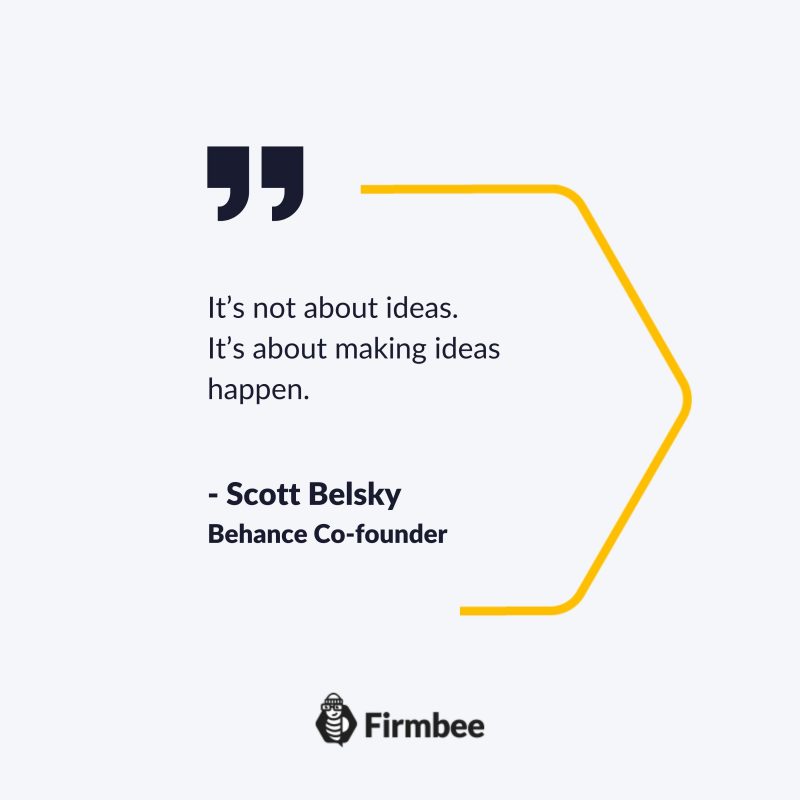A good business idea is half the battle. However, what if the concept itself is absurd and bizarre? Well, today, we are using many products and services that seemed completely ridiculous just a few years ago. Here are some of the wildest startup ideas that left originators with millions of dollars. Read on.
Startup ideas- table of contents:
Weird business ideas that made millions
We have gathered a list of the most ridiculous business ideas that turned out to be profitable. Mostly, they were not given any chance to achieve business success, but today, they are powerful brands whose services we use on a daily basis.
Obviously, Facebook should be first on our list. The idea was so absurd that it was hard to explain it to investors. Most people thought that the concept was simply a joke. What could be interesting about a platform where students could only waste their precious time?
Initially, the service was aimed at a smaller audience, and it was supposed to be free. What is more, there had been several other social networks before Facebook, and they all failed. How could it make money, then? Well, nowadays, the site earns over 12 billion dollars a year and has countless users.

Snapchat
Evan Spiegel presented his idea for Snapchat during a lecture at the prestigious University of Stanford. The concept seemed so absurd to everyone that it only provided lots of belly laughs. Could the idea of sharing photos that disappear after a few seconds be appealing? People thought it was a terrible project that could only be used for sexting. As it turned out, Snapchat brought together 322 million daily active users in the first quarter of 2022.
Airbnb
Currently, Airbnb is a giant that generates over 5 billion dollars in revenue and offers as many apartments for rent around the world as all the hotel chains put together. At first, however, the idea of hosting strangers and offering them breakfast appeared strange and unusual.
After all, letting a stranger in didn’t seem safe. Joe Gebbia and Brian Chesky talked about their idea a lot, but everyone thought that they were out of their minds. Finally, one investor, Paul Graham, gave them a chance. He believed Airbnb was a bad business idea, but he liked its originators.
PayPal
This world-famous global payments platform was founded by Max Levchellon, Peter Thelloel, Luke Nosek and Ken Howery in 1998. At first, it was called Confinity. At the time, sending money over the Internet didn’t seem safe to anyone.
However, the absurdity of the idea was that people were to use their private email addresses, which were not secured in any way, to make payments.The intermediary processing transactions was to be a company that was not even a bank. Most investors were sure the concept would not get off the ground. Today, PayPal is widely known and earns over 4 billion dollars annually.
It’s hard to believe, but when Google was starting out in the market, everyone thought it was a completely absurd idea. One of its founders, Larry Page, even tried to sell Google for 750,000 dollars to Excite, but all he heard in response was laughter. Why? Google appeared on the market quite late.
At that time, there were already about 20 search engines, and almost none of them were commercially successful. Such ventures were considered to be failures then. Today, Google is the most visited website in the world (with over 90 billion hits yearly) that owns 91% of the search engine market share and generates profits of about 80 billion dollars a year.
Business ideas – summary
Obviously, we have presented only a few of the many absurd startup ideas that really hit the spot. As it turns out, the craziest ones can create the best results. Young businesses often grow in unexpected ways. Take inspiration from the above concepts and give your company a try.
You’ve just read about the wildest startup ideas that made crazy money. Other articles you may like: Generation gap in the workplace.
If you like our content, join our busy bees community on Facebook, Twitter, LinkedIn, Instagram, YouTube, Pinterest.
Author: Andy Nichols
A problem solver with 5 different degrees and endless reserves of motivation. This makes him a perfect Business Owner & Manager. When searching for employees and partners, openness and curiosity of the world are qualities he values the most.
Launch your startup:
- What is a startup?
- Pros and cons of creating a startup
- 8 best industries for startups
- Top 5 skills every highly successful startup founder needs
- How to create a startup? 7 simple and easy steps
- 6 essential startup development stages
- How to create a startup growth strategy?
- General startup statistics you need to know
- Startup vs. corporate job. Which is right for you?
- 5 incredible companies that started in a garage
- How to find a business idea?
- How to check if your startup idea already exists?
- How to name a startup? Useful tips and strategies
- How to gain business knowledge quickly? 5 best practices
- Why do startups fail? 6 startup ideas you should avoid
- 5 weird business ideas that made millions
- Top 6 most profitable small businesses
- 7 questions to determine if your business idea is worth pursuing
- What is a buyer persona? 5 benefits of creating a buyer persona
- How to validate your business idea? 3 easy steps
- Should you follow your passion? The importance of passion in business
- What is market reseach and why is it important?
- Using social media in business
- What to do when you have too many business ideas?
- How to write a good problem statement for your startup?
- How to test your business idea for real?
- How to create a prototype for a product?
- How to build an MVP?
- How to use surveys for testing your business idea?
- 10 useful tools to validate your business idea
- What is a business plan? 4 types of business plans
- What should be included in a business plan?
- What should a product description include?
- Competitor analysis
- Marketing strategy
- Traditional business plan vs. lean startup plan
- Implementation plan. What is it and how to create it?
- Everything you need to know about patents
- Financial management for startups
- What permits and licenses does my startup need?
- What is the average startup founder salary?
- 4 startup taxes you need to pay
- Which legal structure is best for your business?
- Startup costs. How much money will you need?
- Protection of intellectual property in a startup
- Family funding vs. self-funding
- What is a shareholders’ agreement?
- What should a financial section of a business plan include?



















